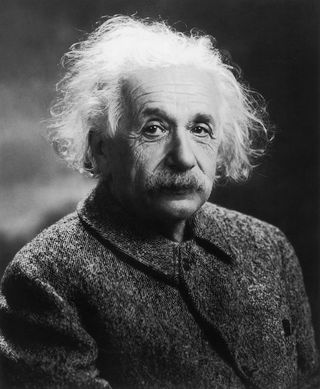Fathers of Physics

Common man contributed to some of the most important discoveries in the field of physics like fire and the wheel. Therefore, it can be said that the whole of mankind has made a combined effort to develop Physics as a science. Isaac Newton, Albert Einstein and Galileo are some of the scientists remembered for their noteworthy contributions and are among the great contenders for the title. Hence, they are known as the Fathers of Physics.
Galileo Galilei

Galileo made a remarkable contribution to observational astronomy. His theoretical and experimental work based on the motion of bodies, contributed in devising important concepts of Physics. Galileo conducted a number of experiments with pendulums. He is among the first who understood sound frequency. He put forth the basic principle of relativity regarding there being no absolute rest or absolute motion. This provided the basis for Newton’s laws of motion and was integral to Einstein’s theories of relativity.
His accomplishments include the telescopic confirmation of the phases of Venus (similar to moon phases), the discovery of Jupiter’s four largest moons (Io, Europa, Ganymede, and Callisto), and his observation of sunspots.
Sir Isaac Newton

Considered as one of the greatest mathematicians and scientists of all time, Newton is famous for his law of gravitation and three laws of motion. Various important concepts and formulae in Physics are based on his principles. His contribution to physics has formed the basis of our understanding of engineering, mechanics, the universe as a whole, among many other fields of study.
Three laws of motion state that
1) Objects in motion stay in motion unless acted upon by an external force
2) Force is equal to the product of mass and acceleration
3) For every action, there is an equal and opposite reaction
Albert Einstein

Albert Einstein is a well-known scientist of the 20th century. His theory of relativity is one of the pillars of modern physics, alongside his work in quantum mechanics.
Einstein came up with two theories in this regard – general relativity and special relativity. The general theory attempted to explain how time and space could be affected by gravity and motion. The special theory demonstrated how nothing could move faster than light.




